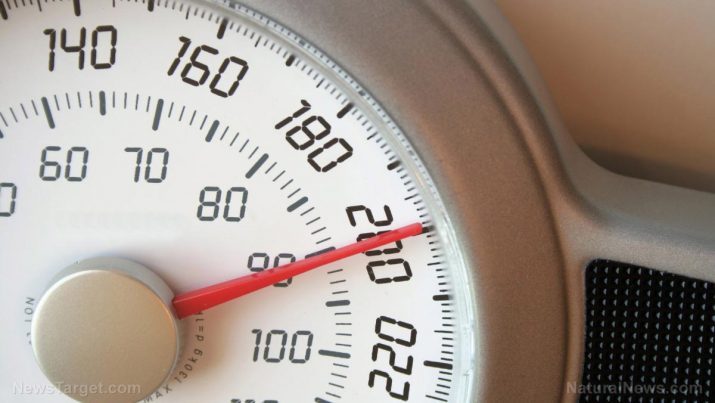
Study reveals a bit of fat is necessary: Besides storing energy and maintaining body temperature and systems, part of your immune system resides in body fat
Friday, August 24, 2018 by Zoey Sky
http://www.naturalnewsresearch.com/2018-08-24-study-reveals-a-bit-of-fat-is-necessary-part-of-your-immune-system-resides-in-body-fat.html

Try not to spend too much time at the gym – according to a study, a bit of excess fat in the body can actually protect you from infections.
Based on the study’s results, body fat stores special cells that remember pathogens, and this makes them more efficient at staving off infection compared to other immune cells. A National Institutes of Health (NIH) study has determined that these memory T-cells that are found throughout the body are very densely packed into fat tissues in mammals.
While most people try to remove as much of the excess fat in their body as they can, it is important to remember that fat is important for both our energy stores and the maintenance of body temperature and systems. The metabolic system, which helps us turn fat into energy, and its connection to the immune system is a complex one. However, scientists have started to look into this link in the past few years.
Too much body fat can be bad and it might even weaken the immune system, but the results of the NIH study could mean that fat may even be beneficial and help protect us against infections. (Related: “Brown” Fat Cells May Aid in Weight Loss.)
T-cells, a kind of white blood cell produced in bone marrow, are distributed through the body’s lymphatic system. There are two kinds of T-cells – helper cells and killer cells – and they work together to protect the body from an infection that carries something foreign, e.g. bacteria.
Memory T-cells
When normal T-cells encounter a certain pathogen, they turn into memory T-cells, or T-cells that have learned how best to fight that particular intruder. T-cells can remember the process that lets them fight infection more effectively the next time around.
The NIH researchers determined that fat tissue in mice and rats are full of a special kind of memory T-cells. The study authors then tried to see if this special kind of T-cells can be used in different animals to fight off the same infection.
The first group of mice was exposed to a pathogen. While the T-cells fought off the infection successfully the first time, it was even more effective when they were exposed to the pathogen again. The researchers then transplanted fat from the first group of mice to a second group that hasn’t been infected.
When the second group of mice was exposed to the pathogen, “their metabolisms switched into a different gear, making the memory T-cells work even more aggressively.” Because the fat from the first group of infected mice “remembered” the infection it had encountered, the study authors wrote that it was “sufficient to protect uninfected mice from lethal pathogen.”
Healthy snack alternatives
If you’re worried about having too much belly fat, try some of these healthier snack alternatives when you’re feeling hungry:
- Baked sweet potato fries – Instead of french fries, make some baked sweet potato fries. Preheat the oven to 425 degrees Fahrenheit. Cut four sweet potatoes into one-inch-wide wedges, then place the flesh side down on a roasting pan. Brush them brush with a mixture of two tablespoons olive oil, 1 1/2 teaspoons chili powder, and one teaspoon kosher salt. Cook, turn each fry once, for 20-25 minutes. Remove the pan from the oven and sprinkle with ½ teaspoon kosher salt.
- Krispy kale chips – Kale chips are a great source of vitamins K, A, and C. Get some raw kale leaves with the stems removed and place them on a cookie sheet. Drizzle with one teaspoon olive oil and a pinch of salt. Cook at 350 degrees Fahrenheit until crispy for about 10 to 12 minutes.
- Low-carb turkey wrap – Get three thin slices of turkey, put two teaspoons of honey mustard and top with 1/4 cup sliced apples. Wrap the turkey slices in lettuce.
You can read more articles about vitamin-rich foods and healthier snack options at Fruits.news.
Sources include:
Tagged Under: Tags: body fat, Diseases, fat, goodhealth, goodscience, immune system, infections, memory T-cells, pathogens, research





